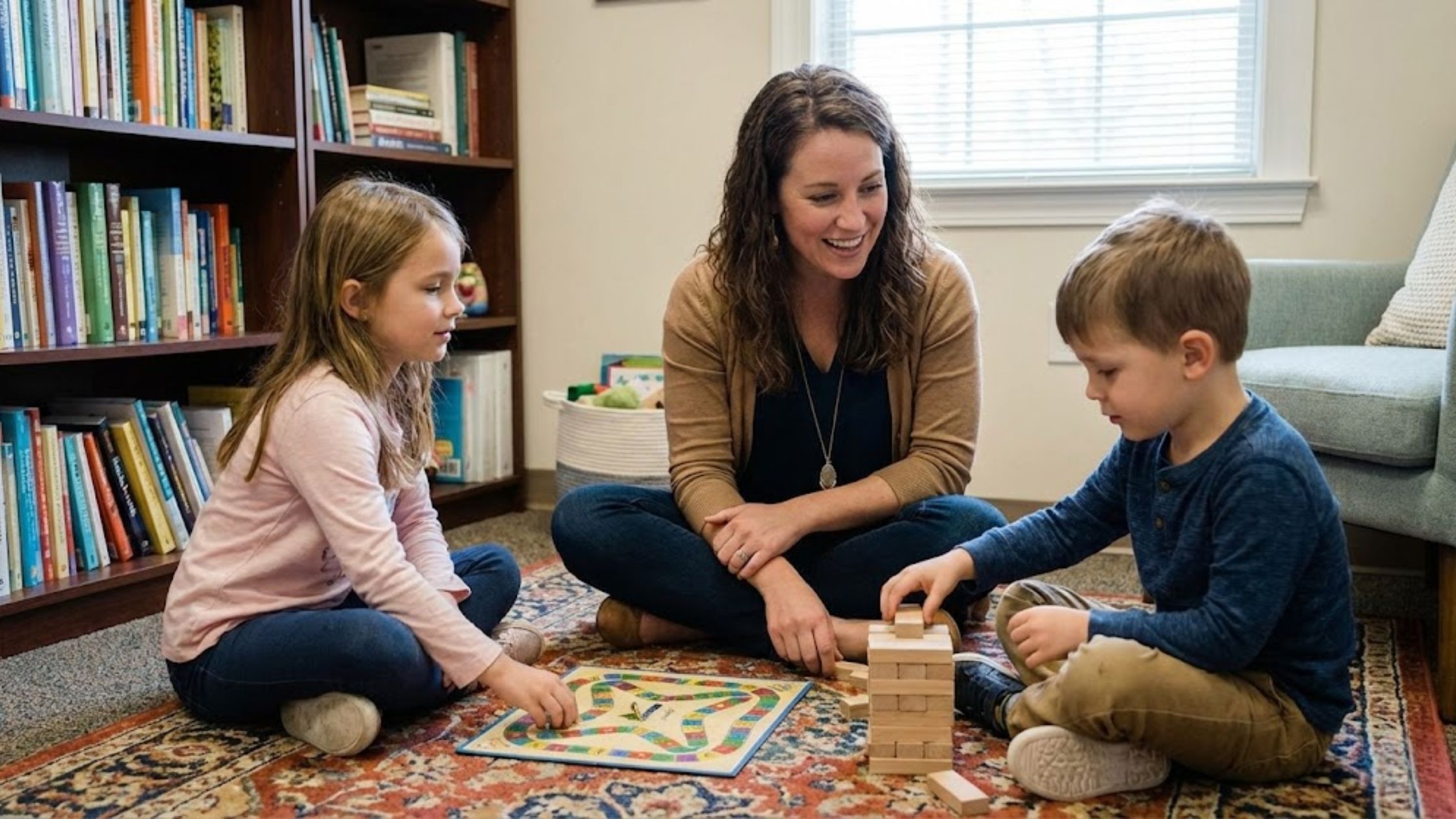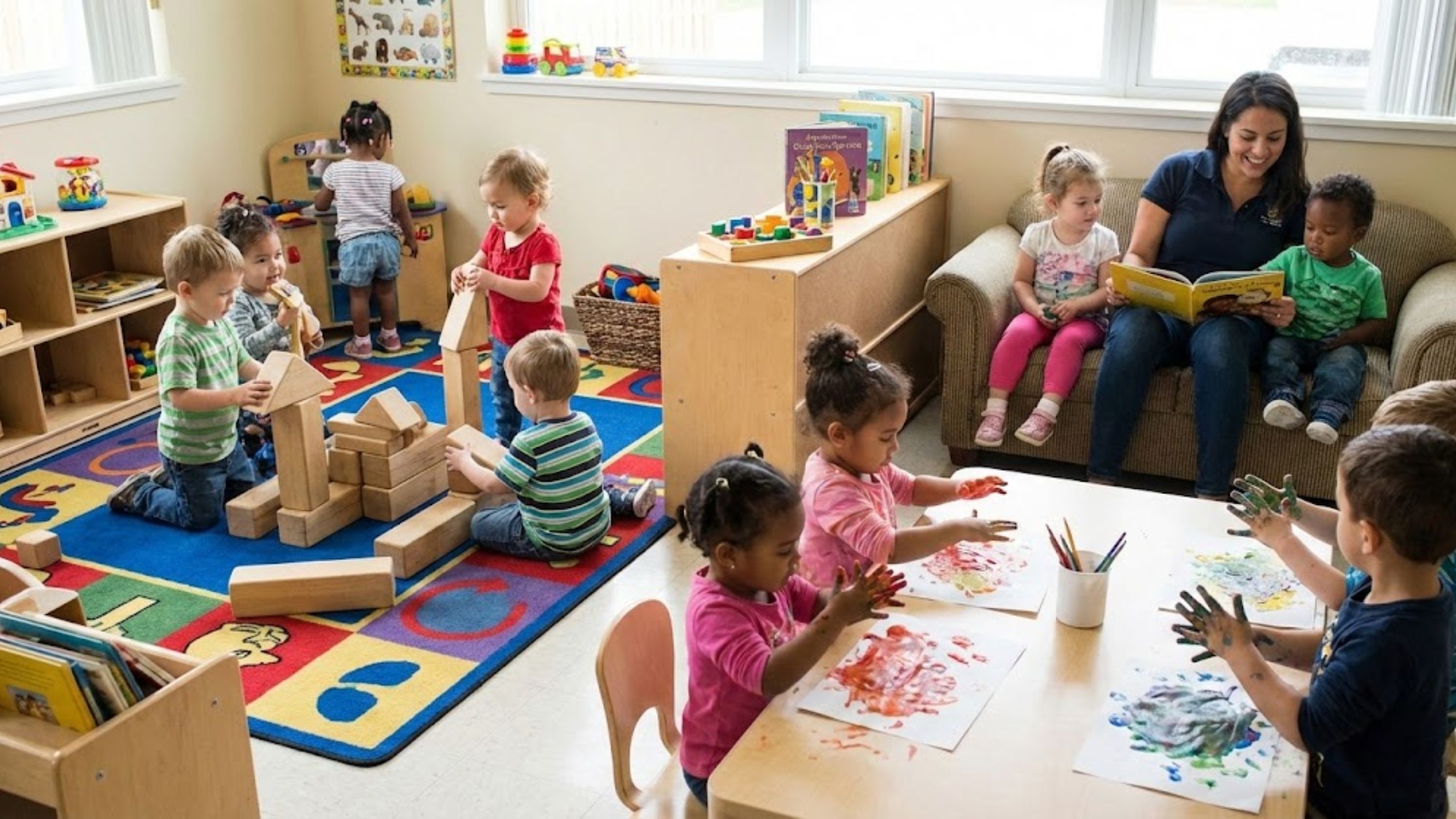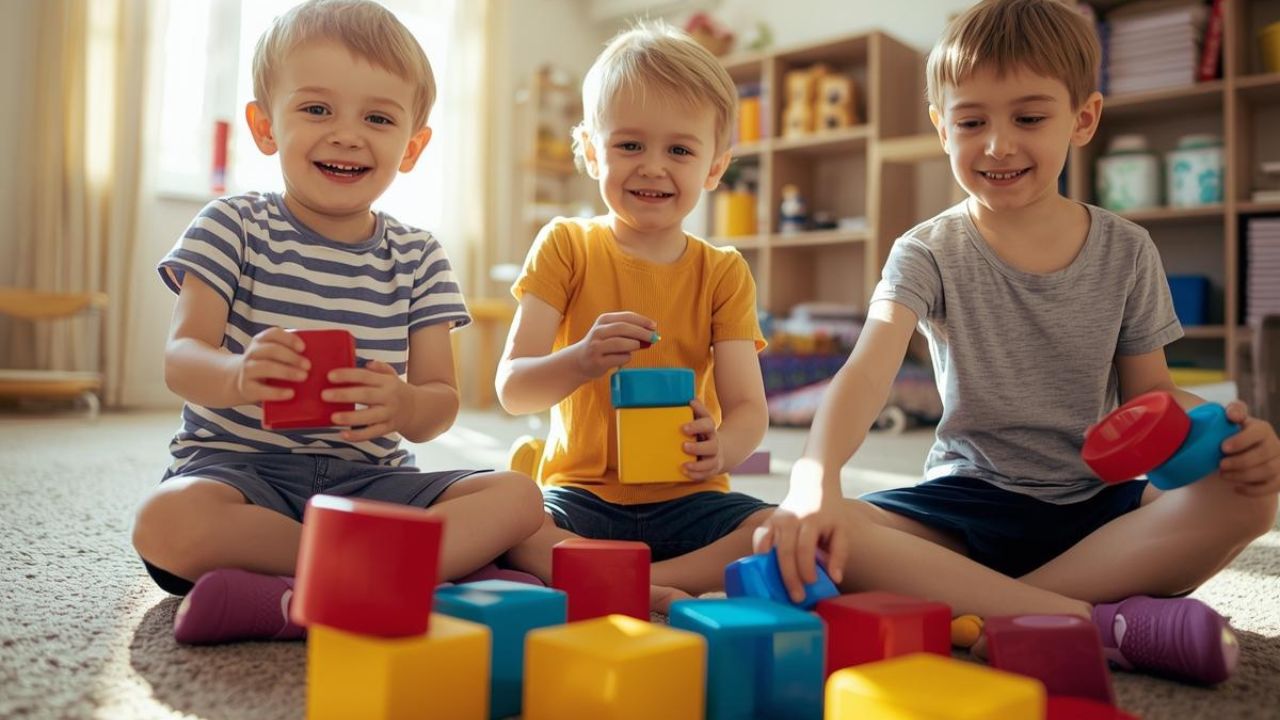The formative years of a child’s life, typically from birth to age eight, are a critical period for cognitive, emotional, social, and physical development. During this time, children’s brains are incredibly receptive to learning and experiences, making it an ideal window for educational interventions that can have lasting impacts. Early childhood education (ECE) is not just about preparing children for school; it’s about nurturing their overall development and setting the stage for lifelong learning and well-being. Early Childhood Education provides children with structured learning environments, fosters creativity, and encourages social interaction, helping in shaping young minds, building essential skills, and laying a strong foundation for future success.
Why Early Childhood Education is Important
Enrolling your child in an early childhood education (ECE) program is one of the most important decisions you can make, as it can have a profound and lasting impact on their development and future success. The benefits of ECE extend far beyond the classroom, influencing various aspects of a child’s growth, from cognitive abilities to social skills.
- Foundational Development
Early childhood education (ECE) lays the groundwork for cognitive, emotional, and social skills, essential for lifelong success. - Expert Guidance and Structured Learning
ECE programs provide a safe, nurturing environment with skilled educators who tailor learning experiences to support healthy development. - Enrichment and Holistic Growth
ECE often includes activities like music, art, and language, fostering creativity and a love for learning, setting children on a path to future success.
What Are The Benefits Of Early Childhood Education?
Early childhood education (ECE) is more than just preparation for primary school—it’s a vital stage in a child’s development that offers lasting benefits. Enrolling your child in a quality ECE program provides a strong foundation for future learning, social interactions, and overall well-being.
- Early Childhood Education Boosts Cognitive Development
Early childhood education (ECE) serves as a crucial foundation for cognitive development by igniting a child’s innate curiosity and fostering a lifelong love of learning. In ECE settings, children are immersed in a stimulating environment filled with engaging activities and interactive experiences that encourage them to think critically and solve problems. Whether they’re piecing together a puzzle or navigating a new game, these activities promote problem-solving skills that are essential for future academic and real-world challenges.
Early Childhood Education exposes children to diverse creative stimuli—like art, music, and imaginative play—that spark their imagination and nurture innovative thinking. Language development is another key component, as children are immersed in rich language environments where storytelling, songs, and conversations expand their vocabulary and enhance their communication abilities. These experiences also help to improve memory and attention, as children engage in tasks that require focus and recall, thus building the cognitive endurance needed for more complex learning in later years. Moreover, early exposure to literacy and numeracy through books, numbers, and patterns lays the groundwork for future academic success by familiarizing children with the basic concepts of reading, writing, and mathematics.
When we create a nurturing and intellectually stimulating environment, ECE cultivates a child’s natural curiosity and provides them with the cognitive tools necessary for lifelong academic achievement.
- Early Childhood Education Fosters Social and Emotional Development
Early childhood education (ECE) is a powerful catalyst for social and emotional growth, providing young children with the tools they need to navigate their interpersonal world and build strong, positive relationships. In an ECE setting, children are consistently exposed to social interactions with peers and adults, which helps them develop crucial social skills such as sharing, cooperation, and peaceful conflict resolution. These experiences teach children how to communicate their needs and understand the perspectives of others, laying the groundwork for healthy relationships throughout their lives. Additionally, ECE
Early Childhood Education plays a significant role in nurturing emotional intelligence by helping children recognize, understand, and manage their emotions. Through guided activities and supportive interactions, children learn self-regulation and resilience, which are essential for handling the emotional ups and downs of life. Positive interactions in ECE also bolster self-esteem, as children receive encouragement and validation from both peers and educators, fostering a sense of self-worth and confidence. Moreover, the collaborative nature of many ECE activities promotes empathy and compassion, as children learn to consider and respond to the feelings of others. Engaging in group activities further enhances their ability to work as part of a team, a skill that is critical for success in both academic and professional settings.
With a safe and supportive environment, ECE not only helps children develop these vital social and emotional skills but also sets the stage for their future personal and social success.
- Early Childhood Education Enhances Physical Development
Physical development is a vital aspect of a child’s overall growth, and early childhood education (ECE) programs play a key role in fostering this development through a variety of activities that promote both gross and fine motor skills. ECE environments are designed to encourage movement and physical exploration, with activities such as running, jumping, and climbing that help children develop their large muscle coordination. These gross motor skills are essential for everyday tasks and lay the groundwork for physical confidence and independence.
At the same time, Early Childhood Education programs incorporate activities like building with blocks, completing puzzles, and engaging in art projects, which hone fine motor skills by developing control over smaller muscle movements. These skills are crucial for tasks such as writing, buttoning clothes, and using utensils. Physical play in ECE settings also enhances balance, coordination, and agility, which are important for both physical activity and daily functioning. Additionally, ECE promotes healthy habits by integrating lessons on nutrition and the importance of regular physical activity, helping children establish routines that contribute to lifelong well-being. Sensory exploration is another important component, as children engage with various textures, sounds, and smells, which stimulates sensory development and enhances their understanding of the world around them.
With play combined with structured physical activities, ECE not only supports children’s physical growth but also lays the foundation for a healthy, active lifestyle that will benefit them throughout their lives.
- Early Childhood Education increases School Readiness
Early childhood education (ECE) plays a pivotal role in preparing children for the academic and social demands of formal schooling, ensuring they enter the classroom with the skills and confidence needed to succeed. One of the key benefits of ECE is the establishment of a strong academic foundation. Through early exposure to literacy, numeracy, and problem-solving activities, children develop the essential knowledge and cognitive skills that are crucial for learning in more structured educational settings. These foundational skills make the transition to school smoother and less intimidating, allowing children to hit the ground running academically.
In addition to academic preparation, ECE fosters independence and self-reliance, traits that are essential for success in school. Children learn to take responsibility for tasks, make decisions, and manage their time, all of which are important for navigating the school environment. ECE programs also introduce children to the concept of routine and structure, which is vital for adapting to the more regimented schedule of formal schooling. By becoming accustomed to daily routines, children learn to follow directions, manage transitions between activities, and understand the importance of completing tasks within set timeframes.
Moreover, the social skills developed in ECE are crucial for positive interactions with peers and teachers. Children learn how to communicate effectively, share resources, and work collaboratively, which not only facilitates learning but also helps them form healthy relationships in school. ECE also builds confidence and motivation by providing a nurturing environment where children are encouraged to take risks, explore new ideas, and celebrate their achievements. This positive reinforcement fosters a love for learning and a belief in their abilities, both of which are essential for long-term academic success.
With a well-rounded, supportive, and stimulating learning environment, ECE ensures that children are not only academically prepared but also socially and emotionally equipped to thrive in school and beyond.
- Early Childhood Education Has Long-Term Outcomes
The benefits of early childhood education (ECE) extend well beyond the preschool years, with research consistently showing that high-quality ECE has a profound and lasting impact on various aspects of an individual’s life. One of the most significant long-term outcomes is higher academic achievement. Children who participate in ECE programs are more likely to succeed academically, leading to higher rates of high school graduation and college enrollment. This early educational foundation not only boosts academic performance but also cultivates a lifelong love of learning.
In addition to academic success, Early Childhood Education has been linked to increased earnings in adulthood. Individuals who received early childhood education often have better job prospects and tend to earn higher incomes, contributing to greater financial stability and economic mobility. This positive economic impact is complemented by the social benefits associated with ECE, including reduced crime rates. Studies have shown that children who attend ECE programs are less likely to engage in juvenile delinquency and criminal activities later in life, as early education fosters positive behavior and social responsibility.
Furthermore, ECE promotes improved health outcomes by instilling healthy habits from a young age. Children who participate in ECE are more likely to adopt nutritious eating habits, engage in regular physical activity, and avoid risky behaviors, all of which contribute to a lower risk of chronic diseases in adulthood. The ripple effect of these individual benefits also strengthens communities as a whole. ECE fosters social cohesion by creating opportunities for children to interact, learn, and grow together, leading to more connected, vibrant, and resilient communities.
Investing in early childhood education is an investment in the future. The long-lasting benefits extend to individuals, families, and society as a whole, making ECE a critical component of building a brighter, more equitable future for all.
Enroll Your Child at Clever Bee’s Early Childhood Education Program
Early childhood education (ECE) offers a wealth of benefits that extend far beyond the preschool years, providing a crucial foundation for lifelong success and well-being. Investing in high-quality ECE programs helps equip children with the skills and confidence needed to thrive in school while laying the groundwork for healthier, more successful lives. The impact of early education ripples through every facet of a child’s life, strengthening families and building stronger, more vibrant communities.
Looking to enroll your child in a daycare in Ohio? At Clever Bee Academy, we are dedicated to nurturing social-emotional learning in every student. Our child development centers provide a supportive environment where children can flourish and achieve their fullest potential. Catering to a wide range of ages, from infancy to twelve years old, our programs are designed to meet the unique needs of each child.
Schedule a tour to visit our centers and meet our devoted educators, who are passionate about fostering your child’s social-emotional growth and overall development.







